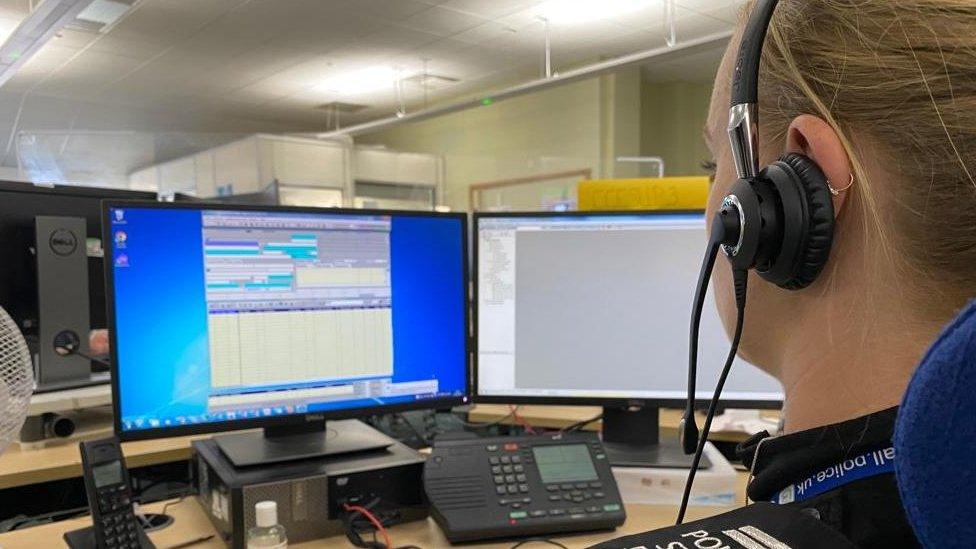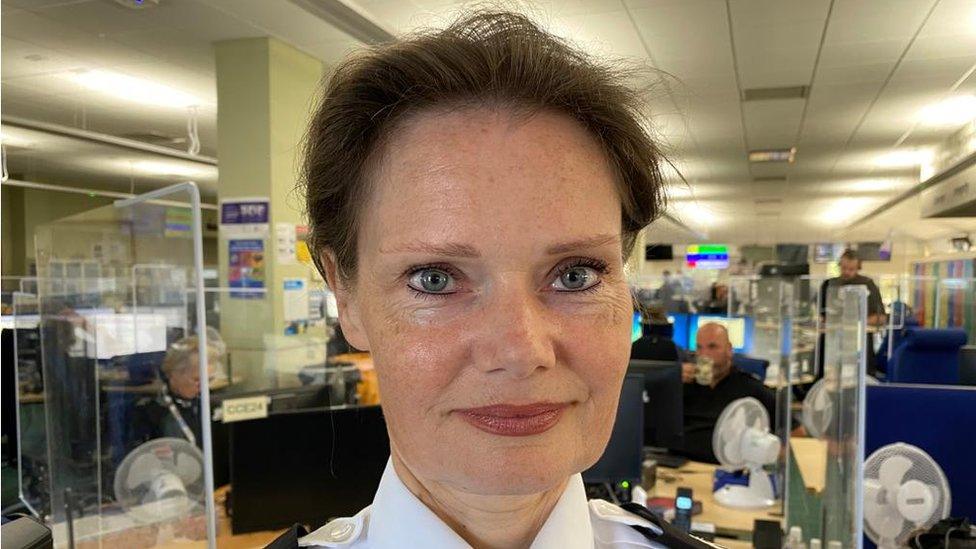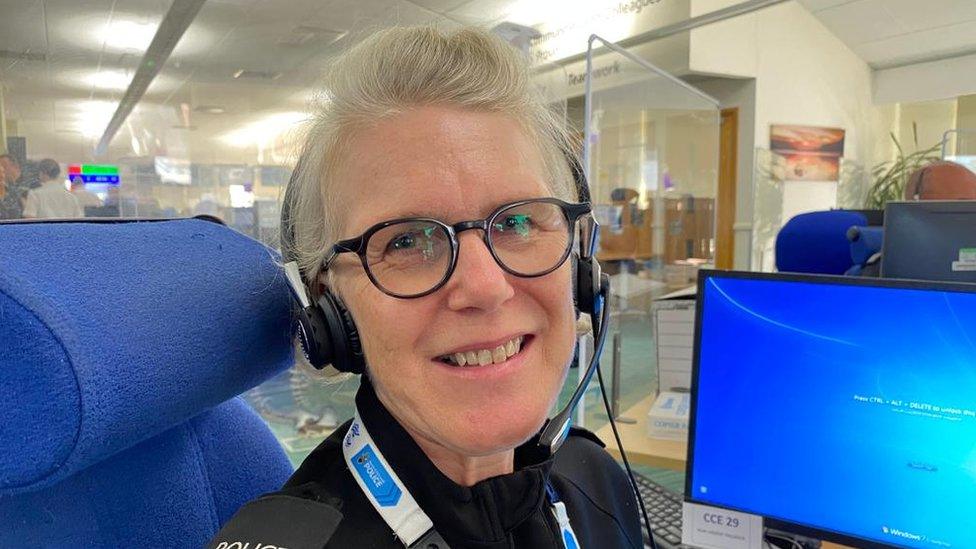Devon and Cornwall Police's 999 calls answer time 'must be better'
- Published

Devon and Cornwall Police is experiencing "unprecedented demand"
Devon and Cornwall Police must be "more responsive" in answering 999 calls, its assistant chief constable has admitted.
ACC Nikki Leaper made the comments as the force faces "unprecedented" demand for its emergency services.
Recent police performance figures, external show it answered only 63 percent of calls within 10 seconds compared to the 90 percent target.
Speaking to BBC Radio Devon, ACC Leaper said the force was "not happy" with its service and "we need to be better".
ACC Leaper said 999 calls have risen by nearly 30 percent this summer, with the force was receiving over 1,000 calls daily, compared to the usual 800.
She said "a lot" of the calls being received were abandoned, accidental 999 calls, often from people's pockets.
However, even these calls have to be followed up and it can take up to 30 minutes, ACC Leaper explained.

ACC Nikki Leaper said the force was recruiting 107 additional control room and radio dispatch staff
"What I would urge the public to do please is if you know you've dialled 999, stay on the line, you're not in trouble, but we need to make sure you're not in danger," she said.
"Equally, if you're at a scene and you've called us and you see a blue light in the distance and you think we've arrived, and you put your phone down, again we need you to stay on the line."
ACC Leaper said the force also received a lot of 999 calls about "non-police matters", such as the upcoming hosepipe ban being imposed by South West Water on 23 August.
Staff have also fielded calls about abandoned cars and fly-tipping, ACC Leaper explained.
In response to an increase in demand in control rooms, the force is recruiting 107 call handlers and radio dispatch officers.
ACC Leaper also said the force was investing in new technology and IT equipment to make it more responsive.

Despite the pressure, Ms Phillips said the job was rewarding
Contact officer June Phillips said the number of daily calls coming in to control rooms was, at times, "relentless".
"An average day at the moment because it's the summer is incredibly busy, you know the calls go through the roof," she said.
Ms Phillips added: "It can be very demanding, and it can sometimes get on top of you, I won't lie, but for the main part, you're working with colleagues that know what you're going through, there's always someone that you can share a difficult call or an abusive caller with.
"It can be pressured, but it's also extremely rewarding, because you know that every day, you've made a difference to someone, or helped them move on from a difficult situation."

Follow BBC News South West on Twitter, external, Facebook, external and Instagram, external. Send your story ideas to spotlight@bbc.co.uk.